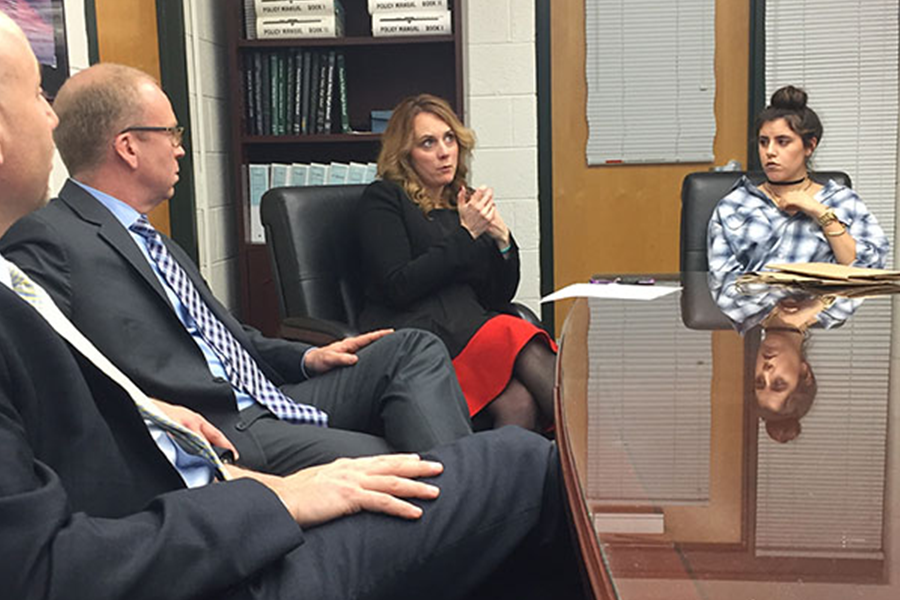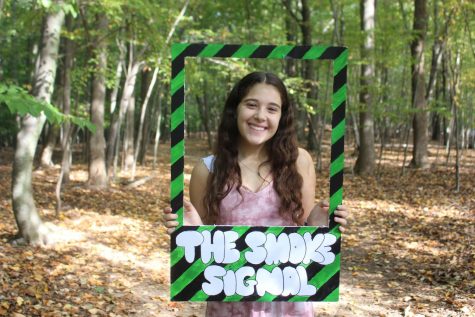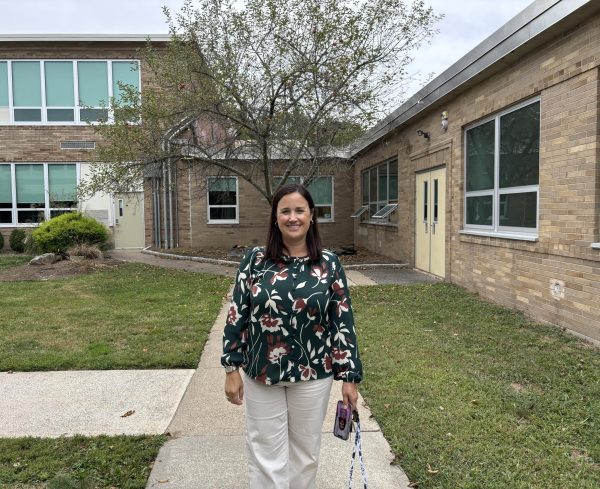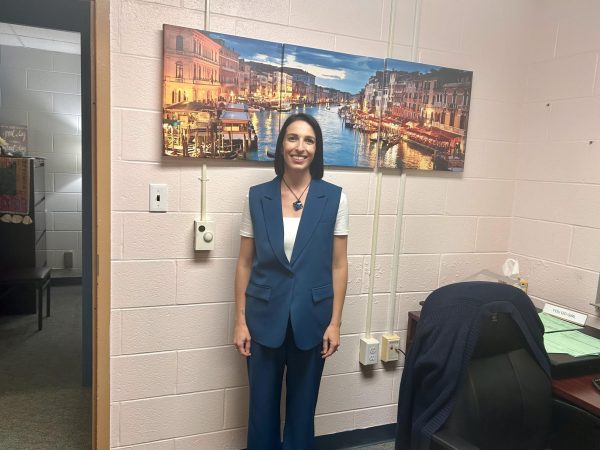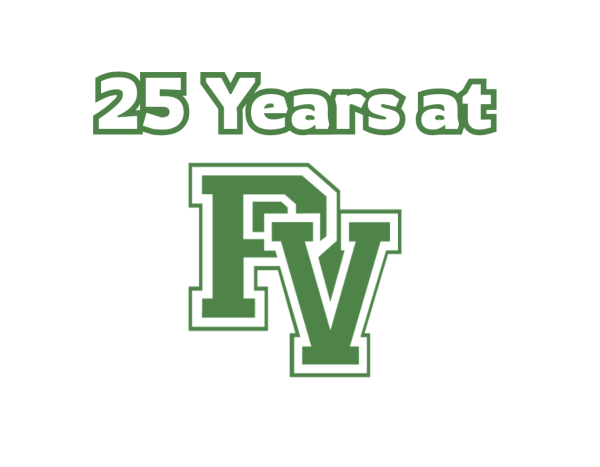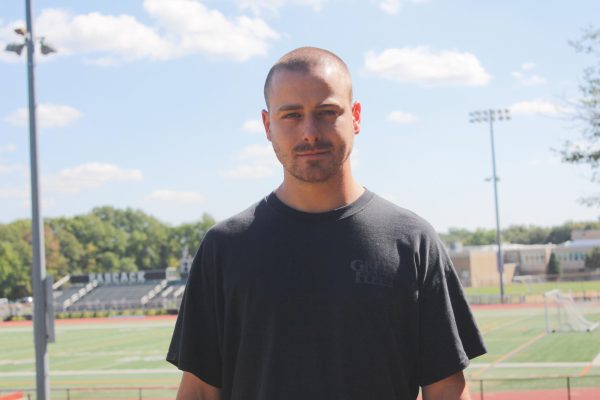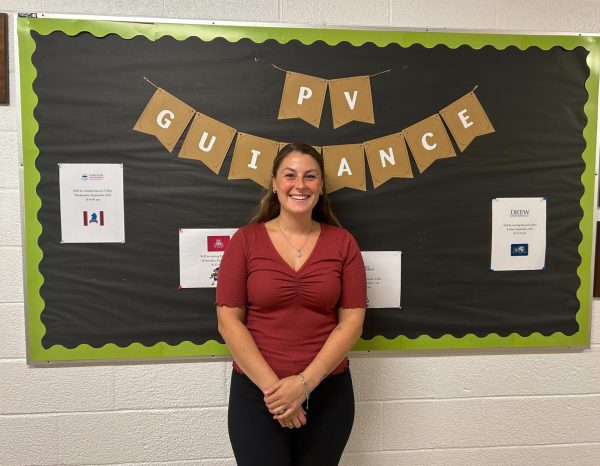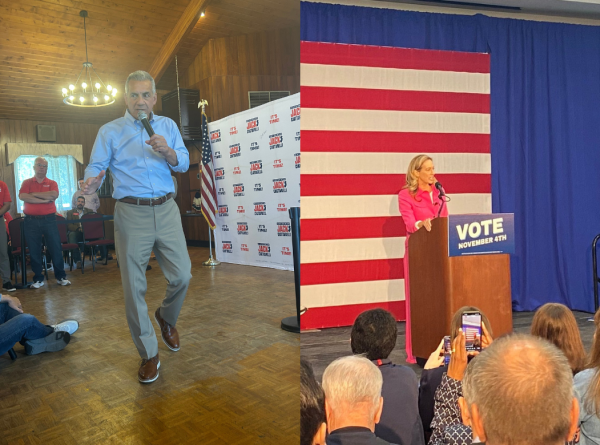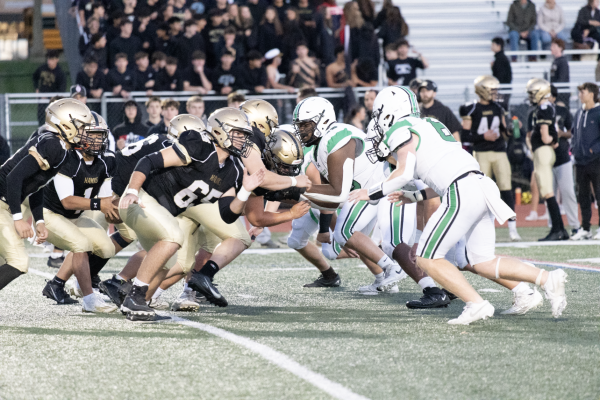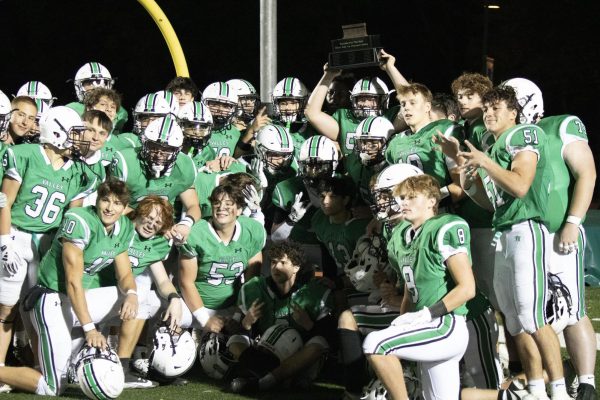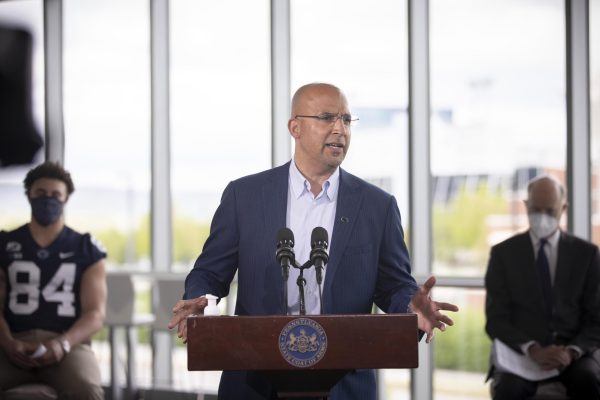NJ Commissioner of Education visits PV
New Jersey Commissioner of Education Kimberley Harrington speaks about alternative teaching styles.
New Jersey Commissioner of Education Kimberley Harrington visited Pascack Valley last Tuesday to observe first-hand the original additions the administration and teachers have put into the curricula and classroom design.
Harrington met with District Superintendent P. Erik Gundersen, Director of Curriculum Dr. Barry Bachenheimer, PV Principal Tom DeMaio, and Division Director of Strategic Partnerships and Constituent Communications of the NJ Department of Education Valerie Francois. Also contributing to the discussion were New Jersey Teacher of the Year and Pascack Valley music teacher Mrs. Argine Safari and PV seniors Valery Berenshtein and Sara Bousleiman.
The purpose for her visit to PV was three-pronged: to observe teaching techniques utilized in our school and to see how they can be used in other schools, to thank the teachers and administrators, and to hear what students think is working and not working in education.
As Commissioner of Education, Harrington oversees everything regarding education in New Jersey and is trying to find ways to improve the learning experience for students.
A former teacher and school administrator herself, Harrington wants to bring what she discovered about students’ learning preferences from her visit to PV back to the state level in an effort to make education better meet students’ needs.
“We often hear from parents, ‘Well, that’s not the way we learned.’” Harrington said, “and I say, ‘Thank goodness it’s not because the way older generations learned doesn’t prepare students for the future.’”
Her biggest concern in education is that schools are not adequately preparing students for their futures. In efforts to bridge the divide, she has been visiting a variety of schools around the state hearing from teachers and students.
“We have a world that is changing so fast and jobs involving so much technology,” Harrington said. “Schools are behind.”
Unlike some of the other schools that Harrington has observed, PV makes an effort to not be behind, namely through its continued implementation of its the one-to-one eLearning Initiative. The district provides each student with a laptop to better prepare students for the 21st century and the world of technology in which we live.
“We pride ourselves on being progressive and the students agree,” Gundersen said.
PV, as an innovative district, has met a few obstacles, such as the state refusing to acknowledge PV’s first attempted “virtual day”, or full day of school work from home, in 2014 as an official school day. Regardless, the district has continued to strive towards innovation through its emphasis on different styles of teaching and diversified educational opportunities.
Much of the meeting with Harrington focused on alternative teaching styles and connecting in class lessons to the real world.
“Everybody has a different preference or style for learning, but all of these different options helps the most people,” Harrington said.
According to Gundersen, when students are passionate about certain subjects, such as art and music, they will likely invest more time and energy into them because they are working for an outcome, such as putting on a performance.
“Often, the content is taught without the context,” Harrington said.
Harrington believes that when materials taught in the classroom are brought into context and are project-based, students can apply what they learned and have it make more sense to them.
“Project-based learning and applying what we learn in class is necessary for advancing education,” Berenshtein said. “The biggest problem for students is how to apply what we learned in school. How do we use that?”
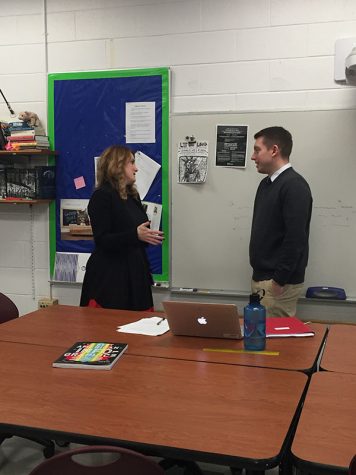
Kimberley Harrington speaks to Matt Morone about his class.
To see how PV attempts to answer this question, Harrington visited and observed Mrs. Barbara Borghi’s period 6 junior Honors Italian 4 class. The juniors were in the middle of a Skype call with an Italian high school student and were active participants in the discussion.
Mrs. Barbara Borghi’s junior Honors Italian 4 class communicates with and does projects with students in Italy as a real life application of their knowledge of Italian as a language. These students will go to Italy next year as part of the Italian Exchange Program, which began seven years ago. According to DeMaio, this “interaction and collaboration” makes the students excited and more willing to put in work.
Harrington also stopped by English teacher Mr. Matt Morone’s room to witness the “open classroom” with standards-based individualized learning take place. In the open curriculum, students have no specific deadlines. Therefore, students have as long as they need to get their work to a place they are happy with.
“I’m not used to [the class] yet, so it’s scary not having deadlines,” PV sophomore and Honors English 2 student in Morone’s 6th period class Matt Beyer said.
Because of this class structure, Beyer was able to participate in NaNoWriMo and write a novel in a month, which he found to help him in other aspects of the class.
“Writing an essay is easier to do now after writing the novel, where there were no restrictions, because I now know how to write,” he said.
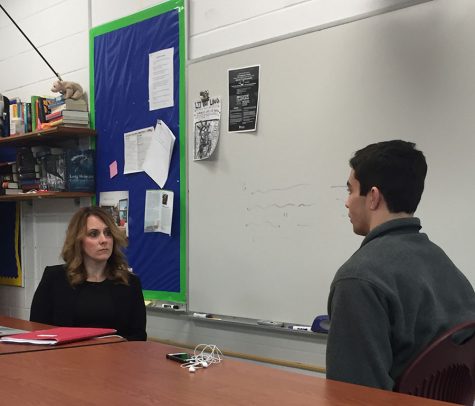
Matt Beyer speaks to Kimberley Harrington about his experience in Morone’s class.
After observing these classes, Harrington said that she loves both the choice students have regarding their own education and the effort teachers make to afford them that choice.
She wants to change the future of high school education and spoke to students to hear what they would like to see improved in high school.
Safari believes that listening to and speaking with other educators, in addition to students, will continue to positively change education.
“That has to do with mindset. Everyone has to be open, the teachers and the administrators making those decisions,” Safari said. “This learning community is coming together and opening this dialogue between everyone involved.”
Safari suggested increased professional development and preparation for teachers to “break the barriers” facing education today.
“Students of all ages, from kindergarten to seniors, are screaming,” Harrigton said. “They’re telling us exactly what they need and we’re not listening to them.”


